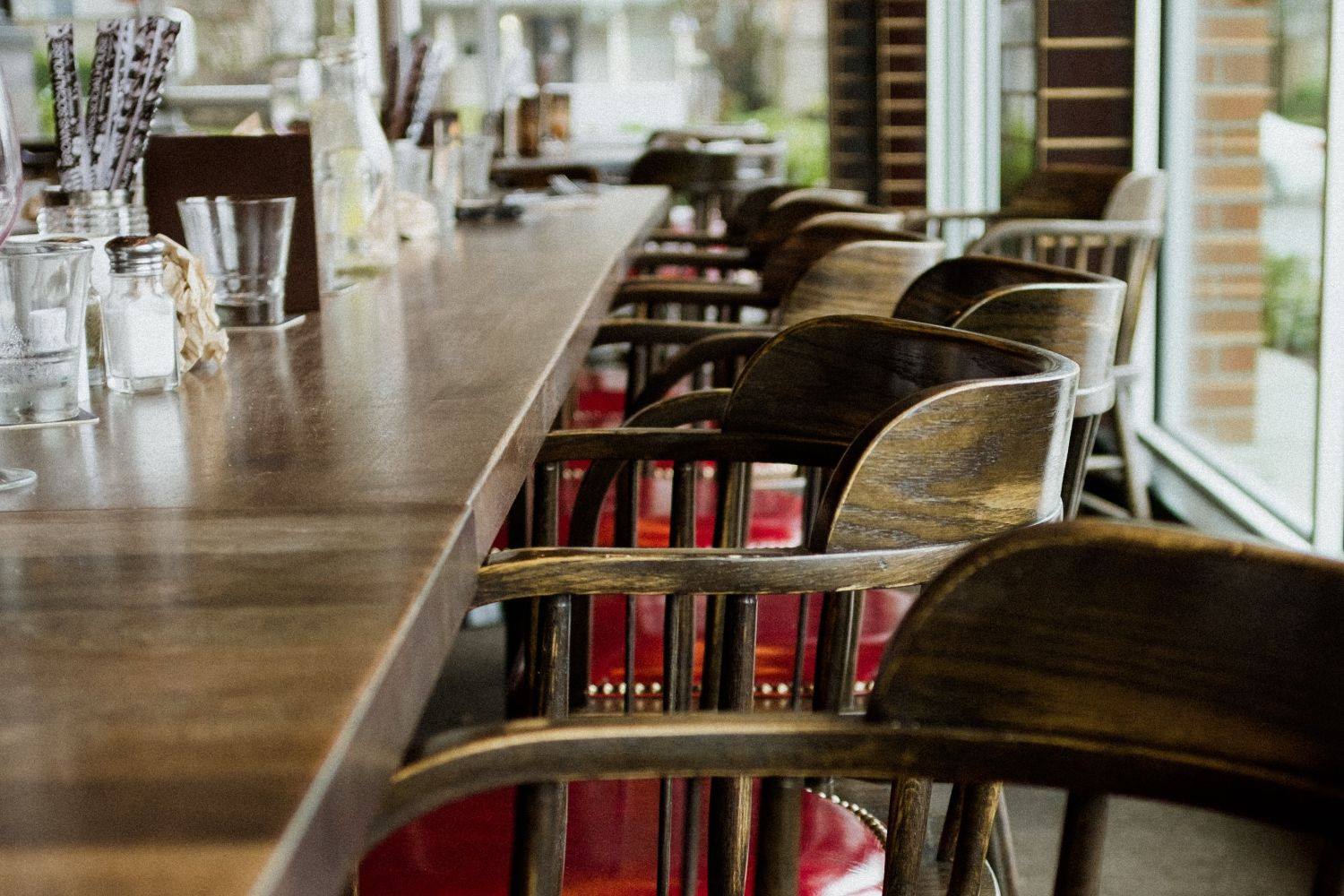As customers flock back to stores and restaurants, it presents a big challenge not just on Vancouver Island, but across B.C. A shortage of workers is sparking a labour crisis, with businesses struggling to meet the demand.
And when it comes to the most overwhelmed, it seems the restaurant industry takes the cake, as eatery owners voice their concerns and tape ‘labour shortage’ signs to their front doors.

Staff at Ricky’s Grill in Campbell River say they’re facing a labour shortage (Photo: Ethan Morneau, staff)
The signs welcome customers, pleading for them to understand the situation and practice patience while taking into account the strain brought upon by the ongoing pandemic.
As BC Restaurant and Foodservices Association (BCRFA) program manager puts it, “we had a very tough year and a half for restaurants in B.C.”
According to Samantha Scholefield, “it’s been really challenging.” Due to COVID-19, she says there has been two separate periods restaurants had to close fully, partially, or stay open take-out only. Because of that, she notes a lot of restaurant workers called it quits, moving on to other careers or jobs.
But what’s important to keep in mind, Scholefield says, is that B.C. was already facing a labour shortage prior to the pandemic. In fact, it first came to light for BCRFA staff about three years ago.
“We did a labour shortage study focusing on metro Vancouver, but then we actually made sure we were doing research all around the province, starting in 2018,” Scholefield tells My Campbell River Now.
“Part of the reason for the original labour shortage, now compounded by COVID, is that for the last ten years, there have been fewer high school and university-aged students than there were in previous generations. When we have fewer young workers, we have fewer people for first jobs,” she says.
Scholefield points to data that finds about 30 to 35 per cent of restaurant workers are under the age of 25. “So, depending on the workplace, you would have a lot of people who are working in our businesses on their first job or to support their education, working around classes, and things like that. When you have fewer young people, you have fewer workers to pick from.”
For Scholefield, the impact of the shortage is clearer now more than ever, especially after recent chats with restaurant staff from across the province, including on Vancouver Island.
“Courtenay, Comox, up to Campbell River, the challenge is keeping those hours that we used to have. So when everybody used to be open seven days a week, now people are open six days, some are open five days a week,” she says. “They just can’t wear their staff out. They’re not getting the relief people that will do the part-time shifts to top up, to be able to be open seven days a week.”
Crown Isle Resort in Courtenay is one business feeling the strain. General manager Bill Kelly says the resort is running “very thin” on staff through the tail end of August and through September.
But Kelly knows they’re not alone. “The hospitality industry is really struggling with the labour shortage,” he says. “We just ask that when you do go out for dinner, when you’re booking a corporate event, or even just trying to get a hold of us, we have our managers doing front-line duties day in and day out. They can’t always get to their phones and can’t always get to their emails.”
In Campbell River, it’s the same story. Mayor Andy Adams is asking locals to understand the challenges facing restaurants. “Service may not be as quick and prompt as you may expect. Plan for that and just enjoy the time there and the experience, and be patient,” he says.
And the city’s Downtown BIA executive director, Jan Wade finds that “Everybody’s feeling it.” According to Wade, there are staff shortage signs all over the place.
“I usually go downtown about once a day, and I end up talking to people. They just say it’s very difficult to attract people to work, even though the wages that they’re offering, in some cases, are really good.”
Wade’s worried, but she’s keeping hopeful. Through the COVID-19 pandemic, she has noticed that Campbell River businesses are “very resilient.” And while it may be a strength recognized locally, it’s one that definitely extends beyond, as all B.C. businesses continue to ride the same wave, adapting to the new normal.




